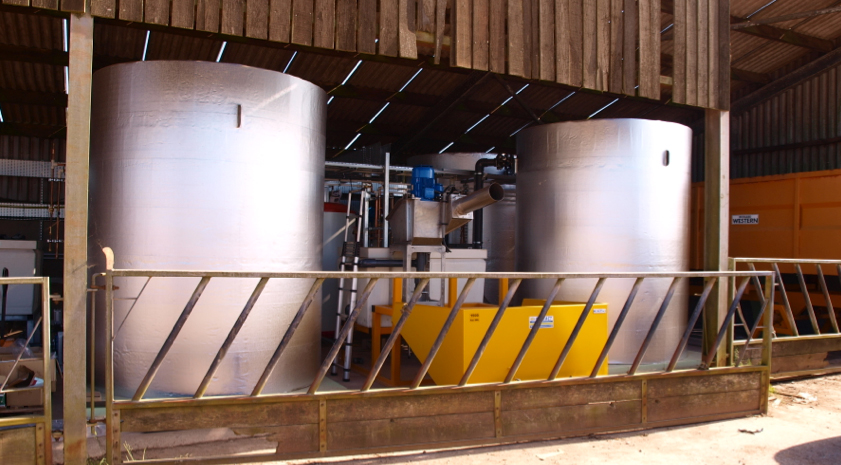
Devon-based renewable energy company New Generation Biogas (NGB) has agreed a funding deal to build and install three of its anaerobic digester plants on farms in 2015.
Commitment is also there for a further three plants in 2016 with another 20 systems provisionally to follow. NGB are now looking for suitable sites where the plants can be installed.
“We are very excited to have received this financial boost from Renewables Unlimited, based in Glasgow, in the form of the purchase of three of our AD systems, which will let us take a big step forward in promoting the use of AD by small and medium sized farms,” said Stirling Paatz, Founder and Director of NGB. “This is the breakthrough that is needed for smaller farms wanting to gain additional long-term returns from their own on-site AD plant.”
Until now, AD systems have only been suitable for larger business operations And although there has been significant interest in AD in the agricultural sector, its adoption has been held back by the unsuitability of conventional AD plants for smaller agricultural businesses, entry level costs of £1million-plus and difficulties in obtaining finance.
“With this new investment and our technology we are now able to resolve these issues and deliver the right solution with no financial risk to the farmer,” said Paatz.
NGB will install the plant for each farm at no cost and look after it for 20 years. Sophisticated remote monitoring systems are included so there is minimum involvement required by the farmer beyond general care and feeding. After 20 years the AD system will belong to the farm.
“This system is particularly suited to farms with animal waste, such as dairy, poultry or pig farms,” added Paatz. “There is a huge palette of benefits for the farmer including cheaper electricity, free heating and high quality fertiliser that has passed through the AD plant.
This fertiliser has much lower methane emission levels than slurry when it is spread on fields.
“We really believe this new type of AD plant is the way ahead for a significant expansion in the use of AD in this country. We are now looking for a number of farms where we can put our new AD system in place, and we are keen to hear from anyone interested in taking up this offer.”
“This new AD system is possible due to advances in engineering and microbial fermentation,” he explained.
“I have been involved with this technology for more than 15 years, and it is fantastic to see it turning into a reality with small farms able to benefit from their own AD system for the first time.”
